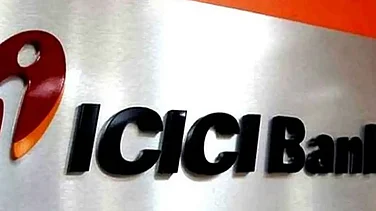Many mutual fund investors look at a fund’s one-year returns as the primary performance indicator, without taking into account other parameters like longer term returns, the fund house’s pedigree, consistency, risk-adjusted returns and the investment allocation.
What Is Wrong With One-Year Return?
Investors believe that the fund manager with the highest returns in the last one year must currently be the smartest guy around but in reality such short-term performance in equity markets is driven more by coincidence than skill.
For example, take the case of small cap funds in 2017 and 2018. In 2017, SBI Small Cap Fund gave blockbuster returns of 80.4 per cent followed by L&T Emerging Businesses Fund with 67.8 per cent returns. What happened in 2018? Both funds gave negative returns - SBI Small Cap yielded 18.5 per cent and L&T Emerging Businesses with -12.9 per cent.
Advertisement
So, what went wrong?
The markets went in a risk-off mode and decided to favour large cap stocks over mid and small caps. Did fund managers know this was going to happen?
No. Such short-term trends are part and parcel of stock markets and no one can predict when one trend is going to stop and the other start. Mutual Funds whose portfolios coincide with the current trend give good returns till the current trend changes and then such funds perform poorly.
Hence you want to look for funds that have given good and consistent returns over longer time frames because that means they were able to identify and tap into longer term trends. These funds may not have given the best returns in any particular year but have a better average overall.
Advertisement
How To Invest Systematically?
The first step is to understand how the stock markets work. You can buy the best camera in the world but if you are going to use it like you use your point and shoot camera in your phone, you are not going to get the desired results.
Forget 15 per cent returns, no fund will give you even positive returns every year, irrespective of how much research you (or the fund manager) do. The biggest determinant of a mutual fund’s returns are the overall stock market returns - so if the stock market is in the red, it is very unlikely your mutual fund will be giving you positive returns.
Further understand that all equity mutual funds are not the same. They are classified primarily based on what kind of stocks they invest in (large cap, mid cap, small cap) or which sector they invest in (e.g. pharma and IT). Sectoral funds and mid and small cap funds are more volatile (i.e. will have higher ups and downs) than large cap funds or multi cap funds which are more diversified. So, choose a category as per your investment thesis. For most retail investors sticking to large cap and multi cap funds would be the correct choice.
Now within these categories, look for funds with good one-year, three-year, five-year and 10-year track records. No single fund would have the best returns across all the time periods so as such there is no ‘best’ fund. One simple way is to rank funds across each time period and then take the sum of all ranks to get a combined rank. Short list the top 10 funds based on the combined ranking and then look for how these funds have done during crisis years like 2008. Select funds that held up relatively well instead of which just fell apart. These funds have shown a good balance of returns and risk amongst their peers over a long time period and hence can be invested in with a good degree of confidence.
Advertisement
Will such funds give the highest returns next year? Most probably not. No selection criteria can ensure such kind of clairvoyance. And like how there is no single best mutual fund that will beat all others every year, there is no single selection criteria that is better than every other selection criterion. But if you have a good selection strategy, your funds can do above average and if you keep doing above average over the long term, then you will end up close to the top.
The author is the Co-Founder and Chief Investment Officer, Goalwise















 Just one email a week
Just one email a week